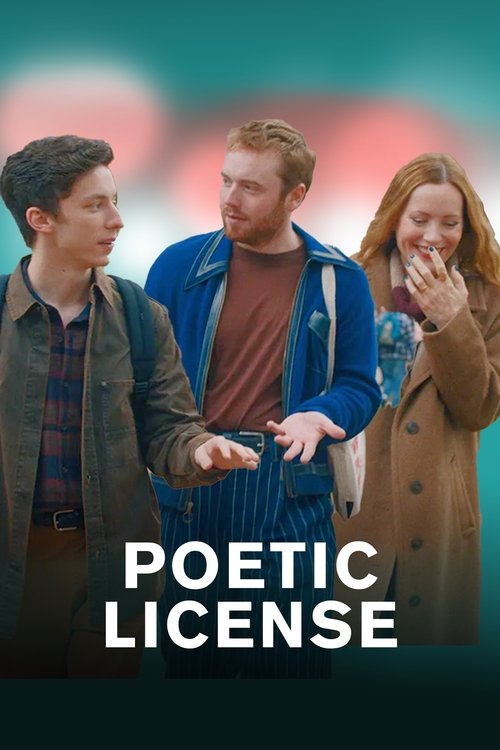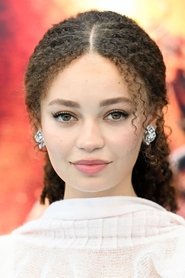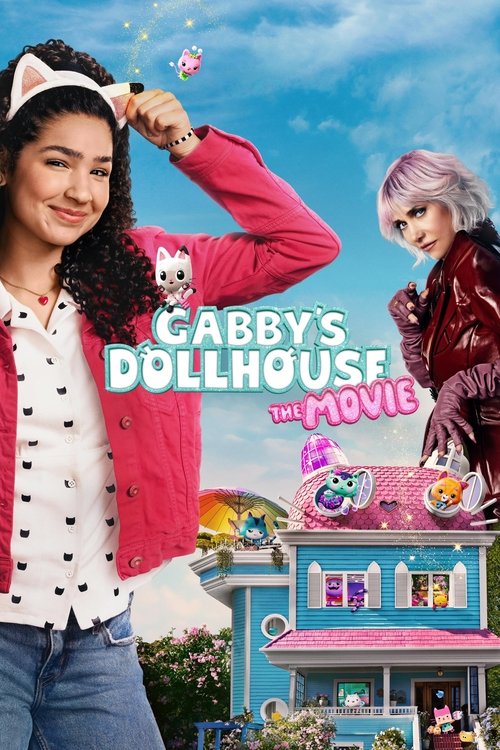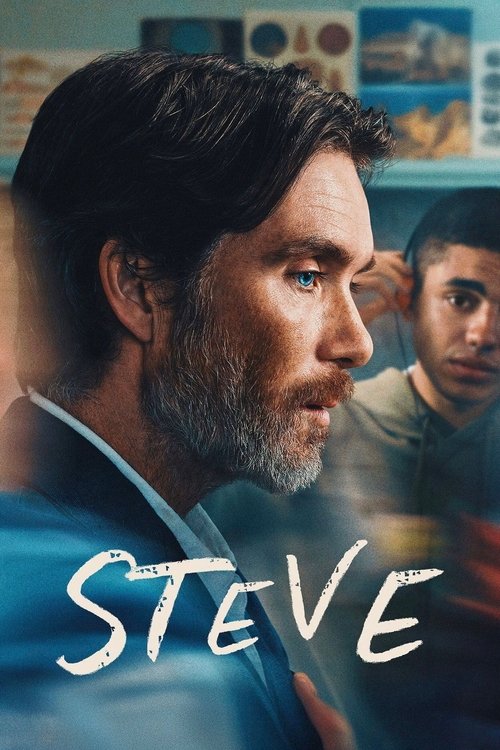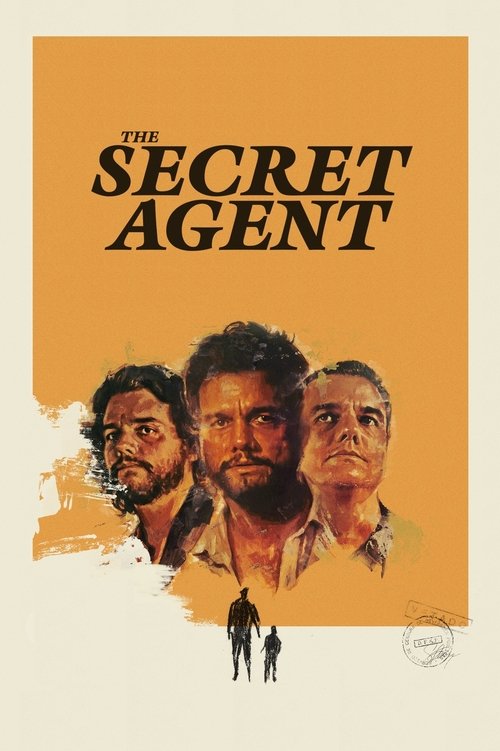
Ask Your Own Question
What is the plot?
Sorry, we aren't able to watch and write up a full detailed plot yet. Check back in a few days.
What is the ending?
Short, Simple Narrative of the Ending
At the end of Poetic License, Liz, having become the object of affection for both Sam and Ari, ultimately chooses to step back from the romantic tension, recognizing the importance of their friendship and her own family. The two young men, after a period of rivalry and hurt feelings, reconcile, realizing their bond is stronger than their competition. Liz's husband, James, remains supportive, and their daughter Dora finds her footing in the new town. The film closes with a sense of renewal for all characters, each having grown from the experience.
Expanded, Chronological, Scene-by-Scene Narrative of the Ending
As the semester at Braddock University nears its end, the poetry workshop led by Professor Greta Ellis becomes the stage for the film's emotional climax. Liz, having spent months auditing the class, has grown close to both Sam and Ari, who have each, in their own ways, developed romantic feelings for her. The tension between the two friends, once inseparable, has reached a breaking point. Their rivalry is no longer playful; it is charged with jealousy, insecurity, and a fear of losing not just Liz, but each other.
In a pivotal scene, the class is assigned a group chain poem, a collaborative project that forces Sam and Ari to work together despite their strained relationship. The assignment becomes a metaphor for their fractured friendship--each line they write is tentative, guarded, until Liz, sensing the discomfort, gently encourages them to be honest with each other. The classroom is quiet, the late afternoon light filtering through the windows as the three of them sit at a table, pens hovering over paper. Liz's presence is calm but firm; she does not take sides, but her empathy is palpable.
Outside of class, Liz has a candid conversation with her husband, James. They sit on their porch at dusk, the sounds of the small college town around them. James, aware of the situation, expresses his trust in Liz but also his concern for the two young men. Liz, in turn, admits her own confusion and the unexpected thrill of being seen in a new light, but she is clear about her commitment to her family. The scene is intimate, the dialogue unforced, and the resolution is one of mutual understanding.
Meanwhile, Dora, Liz and James's daughter, has been navigating her own challenges adjusting to a new school. In a parallel storyline, she finds acceptance among a group of peers, her earlier anxiety giving way to tentative confidence. Her subplot concludes with a small but significant moment--she performs a poem at a school event, her voice steady, her parents in the audience, visibly proud.
Back in the poetry workshop, the final class meeting arrives. Professor Ellis, distracted by her own personal struggles, nevertheless creates a space for closure. Sam and Ari, after weeks of tension, finally speak openly to each other. The confrontation is raw but not hostile; there are tears, apologies, and, ultimately, laughter. They acknowledge their mistakes, their fears of growing apart, and the absurdity of the situation. Liz watches from the sidelines, her expression a mix of relief and sadness. She does not intervene, allowing them to find their own resolution.
The film's last act takes place at a campus poetry reading, where students, including Sam and Ari, share their work. Liz is in the audience, James by her side. When it is Sam and Ari's turn, they perform their chain poem together, their voices in harmony, their friendship visibly restored. The poem itself is a tribute to unexpected connections and the messiness of growing up, no matter one's age. The audience, including Liz, is moved--there is applause, and for a moment, the earlier tension is replaced by a sense of collective catharsis.
After the reading, Liz approaches Sam and Ari. She thanks them for their friendship, her tone warm but final. She makes it clear that while she values what they shared, her place is with her family. Both young men accept this with a mixture of disappointment and respect. There are hugs, a few tears, but no lingering resentment. The trio parts ways, each carrying the memory of their connection, but also the understanding that some relationships are meant to be fleeting.
In the final scenes, Liz and James walk home together, their conversation light, their bond reaffirmed. Dora joins them, her earlier shyness replaced by a quiet confidence. The family is shown settling into their new life, the town now feeling like home. Sam and Ari, meanwhile, are seen back in their dorm, joking and planning their next adventure, their friendship stronger for having been tested.
The film closes with Liz sitting at her desk, writing in a journal. The camera lingers on her face--thoughtful, content, a woman who has rediscovered parts of herself she thought were lost. Outside, the college town is alive with the energy of a new semester beginning, a visual echo of the new beginnings each character has found.
Fate of Each Main Character at the End
- Liz Cassidy: Chooses her family over a romantic entanglement, reaffirming her marriage to James and her role as a mother to Dora. She emerges with a renewed sense of self, having explored her creativity and desires, but ultimately finds fulfillment in her existing relationships.
- James Cassidy: Remains a supportive and understanding partner to Liz, his trust in their marriage unshaken. He continues his professorship, content in his family life.
- Dora Cassidy: Successfully adjusts to her new environment, gains confidence, and begins to form her own identity separate from her parents' struggles.
- Sam Soloman: Reconciled with Ari, he moves past his infatuation with Liz and rediscovers the value of his friendship. He is shown looking toward the future with optimism.
- Ari Zimmer: Similarly reconciled with Sam, Ari matures through the experience, letting go of his romantic idealization of Liz and embracing the complexities of adult relationships and friendships.
- Nico Parker as Dora: Finds her place in the new school, performs her poetry publicly, and begins to thrive socially and emotionally.
- Method Man as James: Remains a steady, loving presence in Liz's life, his character underscoring the film's theme of enduring partnership.
- Professor Greta Ellis: Though her subplot is secondary, she is shown managing her personal struggles while maintaining her role as an educator, her classroom a space for growth and healing.
The ending of Poetic License is one of gentle resolution--no grand gestures, but small, honest steps forward for each character, their lives richer for the connections they've made and the challenges they've faced together.
Is there a post-credit scene?
There is no evidence in available sources that the 2025 film Poetic License contains a post-credits scene. The film, directed by Maude Apatow and starring Leslie Mann, Andrew Barth Feldman, and Cooper Hoffman, premiered at the 2025 Toronto International Film Festival and is scheduled for wide release in 2026.
Detailed reviews and plot summaries focus exclusively on the main narrative, which centers on Liz (Leslie Mann), a former therapist and soon-to-be empty nester, who becomes entangled in the lives of two college seniors, Sam and Ari, as they compete for her attention while her own family life undergoes significant change. The story concludes with a climactic confrontation that resolves the central tensions between the characters, but there is no mention of any additional scenes during or after the credits that extend the story, tease a sequel, or provide bonus content.
Cast and crew listings, as well as festival coverage, do not reference a post-credits scene, and no reputable source describes such a sequence. Therefore, based on current information, Poetic License does not feature a post-credits scene.
How does the friendship between Sam and Ari change after they meet Liz?
Sam and Ari, two inseparable best friends and college roommates, start to unravel and their friendship is tested as they both compete for the affection of Liz, a middle-aged woman auditing their poetry class. Their bond, initially strong despite their differences--Sam being reserved and career-focused, Ari being more emotive and free-wheeling--becomes strained and complicated by their mutual interest in Liz.
What is Liz's background and her role in the story?
Liz is a former therapist who has moved to a new town with her husband, James, who takes a university professorship. With her practice left behind, Liz audits a poetry class at the local college, where she meets Sam and Ari. She is a central figure whose presence disrupts the dynamic between the two young men. Liz is also a mother to Dora, a teenage daughter adjusting to a new school and town.
What are the key personality differences between Sam and Ari?
Sam is portrayed as a reserved, people-pleasing economics major with a clear, conventional career path aimed at finance, while Ari is a wealthy, gregarious, and more self-absorbed free spirit. Their contrasting personalities and life goals create a natural tension that is exacerbated by their competition for Liz's attention.
How does Dora, Liz's daughter, fit into the story?
Dora is Liz's teenage daughter who is entering her final year of high school and trying to adjust to a new school and town. Her coming-of-age experience runs parallel to the college life and middle-aged challenges depicted in the film, adding a multi-generational perspective to the story.
What complications arise from Liz's marriage in relation to the college setting?
Liz is married to James Cassidy, who is a university professor at the same college where Sam and Ari are students. This adds complexity and tension, as Liz's husband is also Sam's professor, making the romantic competition between Sam and Ari for Liz's affection particularly messy and fraught with potential consequences.
Is this family friendly?
The movie Poetic License (2025) is not specifically family-friendly and is rated NR (Not Rated), indicating it may contain content unsuitable for children or sensitive viewers.
Potentially objectionable or upsetting aspects include:
- Mature themes involving complex adult relationships and romantic tensions between a middle-aged woman and college students, which may be confusing or inappropriate for children.
- Some cringeworthy or awkward social situations and emotional struggles that could be uncomfortable for sensitive viewers.
- Possible mild profanity and adult dialogue, typical of a comedy-drama centered on college and adult life.
- The film explores family dynamics and emotional challenges related to empty nesting and adolescent issues, which might be intense for younger audiences.
- There is no indication of explicit violence or graphic content, but the tone is more suited to mature teens and adults rather than children.
Overall, Poetic License is best suited for older teens and adults due to its themes, emotional complexity, and some mature content. It is not designed as a children's or family film.

